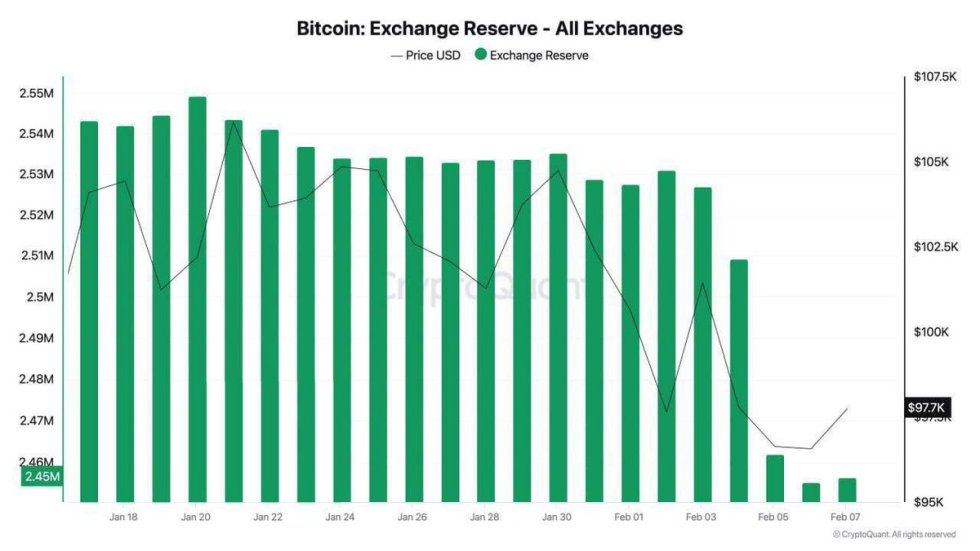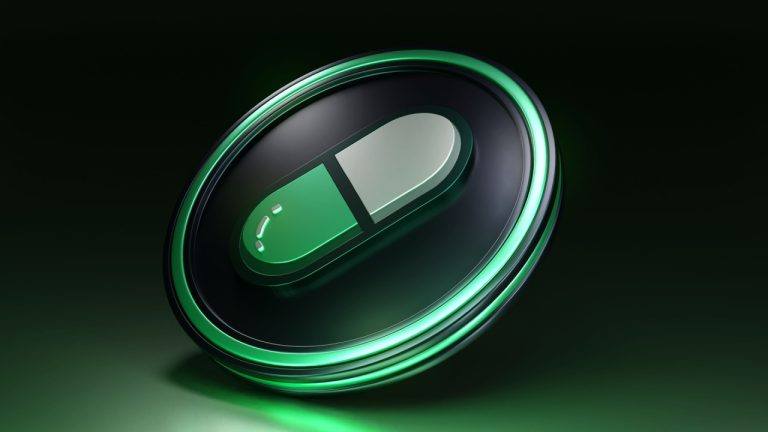Upon its launch, Internet Computer took the crypto market by storm. It’s an ambitious project, supported by some major names in the industry. Designed and created by the DFINITY Foundation, it aims to give more power to the people over the Internet, and it could potentially take it into a new stage powered by its platform.
Now, the Internet Computer has taken another step into the future. Its community recently voted and approved the “Increased Canister Storage” as Internet Computer continues to integrate more features and upgrade its platform.
Next, the community will use the power provided by the Internet Computer governance model to vote on integration with the Bitcoin blockchain. In practice, this will allow Bitcoin to have smart contract functionality (or Canisters, as they are called on Internet Computer) on the Internet Computer network with low-cost transactions and fast finality. Thus, the decentralized ecosystem on both networks could expand into an unprecedented era.
We sat down with Dominic Williams, the founder and Chief Scientist of the DFINITY Foundation to talk about this proposal, its implications for Bitcoin and Internet Computer, and more. This is what he told us.
Q: It has been around 4 months since Internet Computer was deployed, how would you describe the current state of the project and the role the community is playing?
Dom: Developers and entrepreneurs have recognized its potential. As a result, the Internet Computer is experiencing ferocious growth as measured by the number of canister smart contracts running, the number of developers building, and the number of active users the dapps being built have, and arguably it is the fastest growing blockchain when looking carefully at these metrics. Moreover, developers have proven that the Internet Computer can be used to build things that cannot be built on any other blockchain today. For example, one of the most popular dapps on the Internet Computer is “Open Chat”, which already has several tens of thousands of users even though it is still in alpha. This runs entirely from the blockchain, which means that smart contracts are used to process the chat messages, and smart contracts also securely serve the interactive web content users interact with directly into browsers – which only the Internet Computer blockchain is capable of doing today. Therefore, not only has Web 3.0 become real, but the purposes to which blockchain can be applied have greatly expanded.
Q: Internet Computer is a relatively new project in a relatively new industry, why do you think people are drawn into it, what makes the platform unique?
Dom: I think more and more people are coming to the realization that blockchain is the future internet and has immense potential. For that reason, many, many developers, including those who are early in their careers and trying to decide which tech sector to dedicate their lives to, are magnetized to the blockchain. The Internet Computer is one of the oldest original crypto projects but was one of the last blockchains to launch because of the huge amount of R&D work involved in rethinking blockchain architecture from the ground up and developing the new cryptography frameworks that power it. But now that the Internet Computer is available, it offers capabilities completely unlike those of other blockchains.
It is the first blockchain to scale the seamless environment it provides for smart contracts so that it can host any number of smart contracts, and any volume of smart contract computations, and smart contract data, it is the first blockchain to run at web speed (it can finalize transactions in 2 seconds and can serve “query transactions” that don’t modify state in milliseconds), it is the first blockchain to run smart contracts with efficiency comparable to running software on traditional IT systems, and it is the first blockchain that enables smart contracts to securely serve interactive web content directly to those using dapps (today, dapps on all other blockchains have to host their websites on centralized infrastructures, such as Amazon Web Services, which creates all kinds of security and other issues). These capabilities mean the Internet Computer can even be used to create decentralized versions of mass-market social media services, which run entirely from the chain and can be blended with next-generation DeFi services. If you want, it can even be used to build secure enterprise systems, allowing organizations to migrate away from traditional IT to the blockchain. It has the potential to truly uncork the blockchain genie.
Q: Can you tell us more about the process that will allow Bitcoin to operate smart contracts power by Internet Computer? And how it’ll be different from synthesized versions of BTC already operating on Ethereum?
Dom: Today, the Bitcoin network hosts almost a trillion dollars of value, in the form of divisible bitcoins, which play the role of digital gold. However, the Bitcoin network does not currently host “smart contract” software of the kind introduced by Ethereum six and a half years after the launch of Bitcoin. Smart contracts are a new kind of software that is unstoppable and tamperproof, which is guaranteed to run on the blockchain exactly as written and remain secure without the protection of a firewall, can process value in the form of tokens and can even run autonomously without a human or organization controlling them. They allow blockchains to be applied as a new kind of general-purpose platform and have facilitated the DeFi (decentralized finance) revolution that Ethereum pioneered. If Bitcoin gained smart contracts, developers would become able to build all manner of exciting new systems and services that process bitcoins and run from the blockchain, creating immense new value while also adding value to Bitcoin.
The enormous financial value carried by bitcoins has great utility, and so the current practice is to transport bitcoins onto blockchains supporting smart contracts such as Ethereum by “wrapping” them, which is unfortunately very dangerous. It involves bitcoins being sent to an organization running what is known as a “bridge”, which keeps them in its custody and then issues “wrapped bitcoin” on the destination blockchain, which can then be processed by smart contracts. The drawback of this approach is that the bitcoins are passed into the custody of the bridge operators, which must be trusted to correctly redeem the wrapped bitcoins when required later. This is antithetical to the blockchain mission, which aims to remove the need for trust. The approach is consequently highly risky, as demonstrated by the recent hack of the Poly Network bridge on 10 August 2021. This bridge moved bitcoins and other tokens between the Ethereum, Polygon MATIC and Binance Chain networks, and when it was compromised crypto worth six hundred million dollars was stolen (it was later returned by the hacker).
Enter the revolutionary “chain key cryptography” that powers the Internet Computer network. This will enable smart contracts hosted by the Internet Computer to directly maintain, send and receive bitcoins, which actually reside and immediately move on the real Bitcoin network, obviating the need for dangerous bridges and token wrapping. This is possible because the Internet Computer protocol can securely and seamlessly generate the private key ECDSA signatures involved in bitcoin transactions on behalf of smart contracts, using chain key cryptography. Meanwhile, Internet Computer nodes will directly communicate with Bitcoin network nodes, ensuring that transactions and balance information is moved back and forth and is always available. Effectively, the scheme will meld the two networks, extending Bitcoin with arguably the world’s most powerful smart contract capabilities.
Q: Once the smart contract capabilities are implemented, what are the potential use cases that will benefit people using these Internet Computer smart contracts with Bitcoin?
Dom: The possibilities are endless. The Internet Computer scales, and can run unbounded volumes of smart contract computation at web speed. Its smart contracts are also the first to be able to securely serve web content directly to end-users without intermediaries, with support for the new Internet Identity anonymizing blockchain authentication system allowing users to sign-on to dapps (decentralized applications) using devices including fingerprint sensors on laptops, and face ID systems, as well as hardware keys and wallets such as YubiKey and Ledger. This means that in the future, your Bitcoin wallet might be securely served into your web browser and that you will be able to quickly, securely and conveniently authenticate yourself using your fingerprint sensor, before sending bitcoin to any address you like via the user interface. What is more, the Internet Computer is allowing social media services to be built that run from the blockchain, which can then be blended with DeFi. In the future, your Bitcoin wallet might very well be a blockchain chat app, and you might send bitcoin with messages, or atomically transact for an NFT after negotiations. For many, this will begin to realize the vision of bitcoin being applied within internet services that Satoshi originally described.
Q: Can the same process that will enable smart contracts on Internet Computer to be compatible with Bitcoin be implemented into other networks? If so, which could be the next cryptocurrency to be integrated and why?
Dom: It is possible to integrate the Internet Computer blockchain with Bitcoin because of the new “chain key cryptography” framework that powers its protocols. This enables it to create transactions on behalf of smart contracts, such that they do not need to manage private key materials themselves. Once Bitcoin has been integrated, the same work will be leveraged to directly integrate the Internet Computer with Ethereum. This integration will enable two-way calling between smart contracts on the Internet Computer and Ethereum, enabling, for example, Ethereum DeFi dapps to serve their websites from blockchain rather than centralized cloud services such as Amazon Web Services.
Implementing a blockchain that supports chain key cryptography requires a multi-year R&D effort spearheaded by a strong team of specialist cryptographers. For such reasons, it is unlikely that any other blockchain will be able to pull off the same feat in the foreseeable future.
Q: How do you envision the future of the crypto industry, as one where an “Ethereum Killer” has defeated its competition or one where there are multiple blockchains operating to the benefit of their users? Do you think it’s important for Bitcoin, Internet Computer, and others to be interoperable?
We believe in a blockchain trinity consisting of Bitcoin, Ethereum and the Internet Computer. They all clearly satisfy different niches and complement each other. Although both Ethereum and the Internet Computer support smart contracts, the capabilities provided by the Internet Computer environment are vastly different and much broader. Arguably, Ethereum might become the world’s DeFi settlement layer, and will cede the “world computer” vision to the Internet Computer, which was built specifically to realize that vision through many long years of R&D that cannot easily be replicated.
&

You can get bonuses upto $100 FREE BONUS when you:
💰 Install these recommended apps:
💲 SocialGood - 100% Crypto Back on Everyday Shopping
💲 xPortal - The DeFi For The Next Billion
💲 CryptoTab Browser - Lightweight, fast, and ready to mine!
💰 Register on these recommended exchanges:
🟡 Binance🟡 Bitfinex🟡 Bitmart🟡 Bittrex🟡 Bitget
🟡 CoinEx🟡 Crypto.com🟡 Gate.io🟡 Huobi🟡 Kucoin.




















Comments